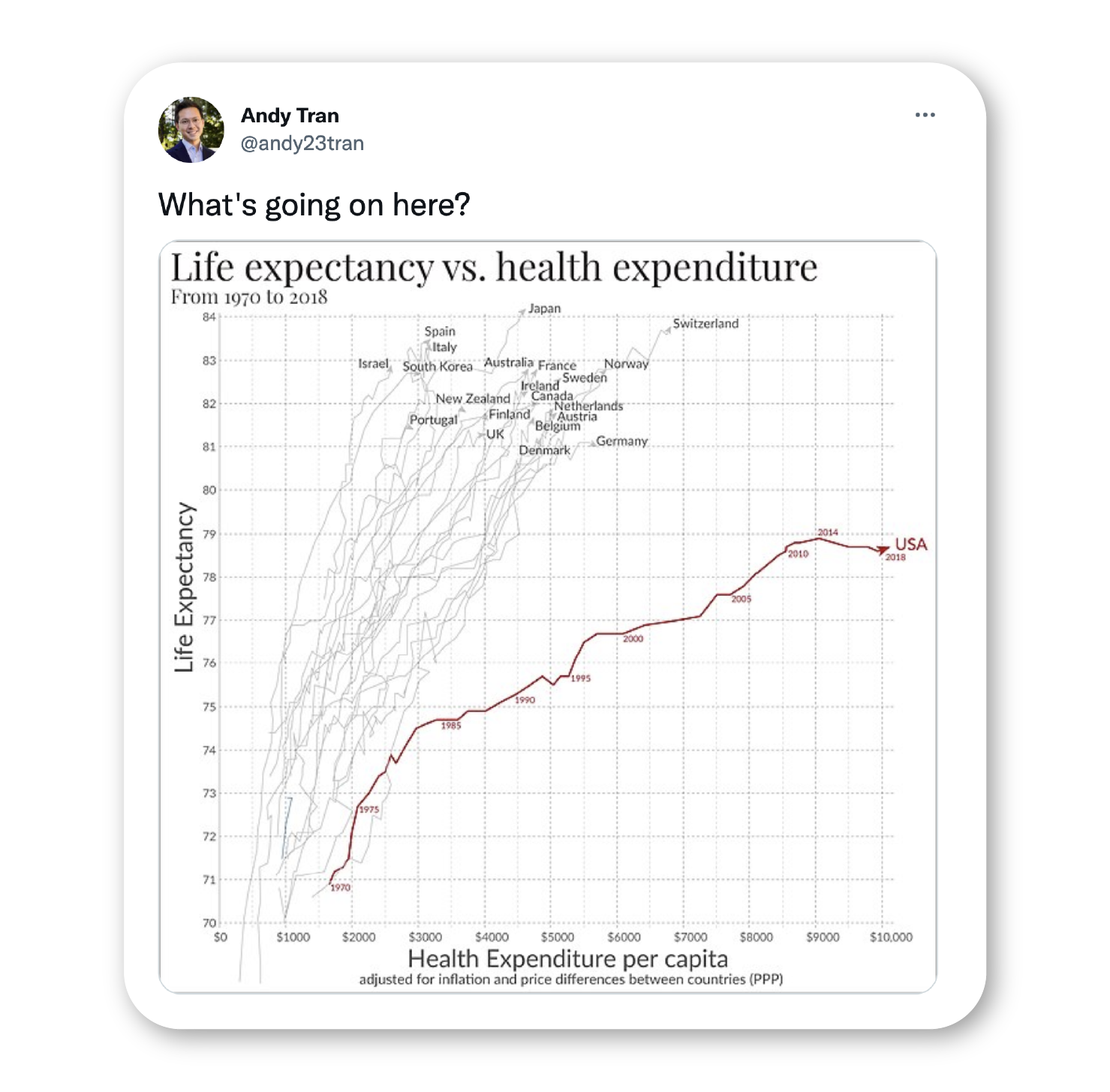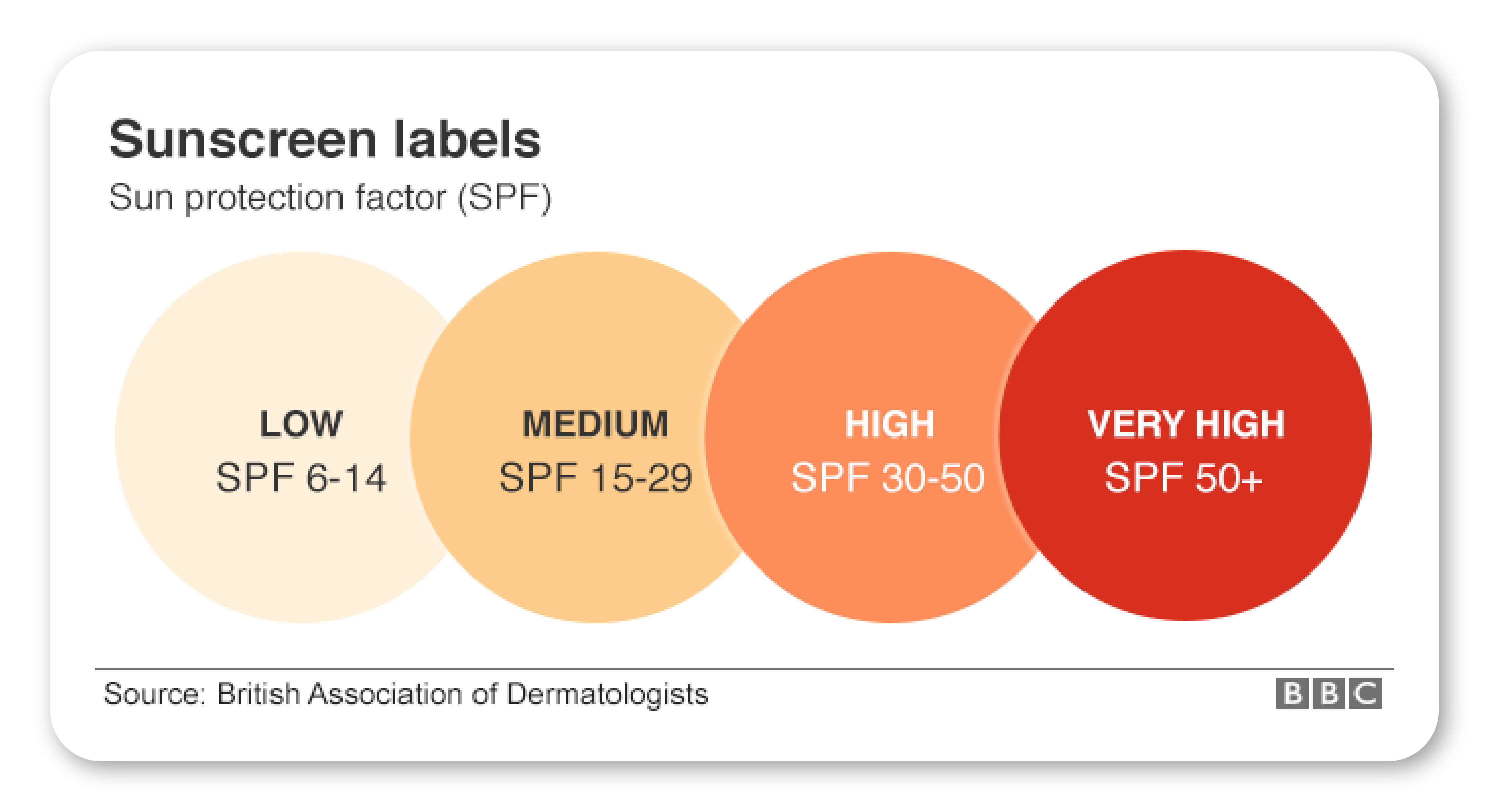Hey friends,
Since we last spoke, carnage ensued. My holiday went from a chilled, isolated, relaxing time; to a party filled, sleep-deprived venture. It's been incredibly fun but I can't wait to head home, catch up on sleep and prepare myself for starting as a Doctor in T-minus two weeks.
This week, I've focused the resonators on healthcare content.
Have a great week,
Jack
🔊 Resonators
Life expectancy vs health expenditure (Tweet)
This is an incredibly interesting Twitter thread! Not just the tweet itself but all of the replies of perspectives and graphs that attempt to explain this trend.
One of the most interesting ones for me was a graph showing the number of healthcare administrators showing a ~3000% growth since the 1970s, while the number of physicians has only had ~100% growth.

How does sunscreen work? (Blog)
I've been a typical Brit on holiday and burned myself, so thought it best to educate myself on sunscreen (although it's a little late now).
Ultraviolet light (UV) is what causes sunburn. There are two types:
- UVA: Excessive UVA causes squamous cell carcinoma of the skin when we get too much of it because it damages our skin cells.
- UVB: Excessive UVB causes malignant melanoma and basal cell carcinoma when we get too much. This is the type of UV light that causes us to look sunburned.
The sun protection factor of sunscreen tells us how much UVB it lets through; not how much it blocks. A sunscreen with SPF 15 allows one-fifteenth of the sun's rays to reach your skin, or about 7%. It filters out around 93% of UVB rays while SPF 30 filters about 97%.

How the pandemic screwed up our antibiotics (Blog)
Pre-pandemic, deaths caused by drug resistance were dropping. Now they're shooting up. Between 2019 and 2020, drug-resistant hospital-related deaths and infections from 7 pathogens grew by 15%.
The most interesting part of this for me was that pharmaceutical companies aren't incentivised to invest in new antibiotics; they don't make enough money. Since 1990, 78% of major drug companies have scaled back antibiotic research.
They'd prefer a drug that needs to be taken daily, like an antidepressant.
How do we solve this? Change the way we view antibiotics. They shouldn't be a free market product. They should be treated as public goods. As we invest in roads, police and water purification—we should be investing in antibiotic research.
“For the US, the total cost to fix the broken antibiotics model is $1.5-2 billion per year,” Kevin Outterson, a Boston University professor who specializes in antibiotic resistance, told me. “It’s the equivalent of what we spend on toilet paper every few months.”
